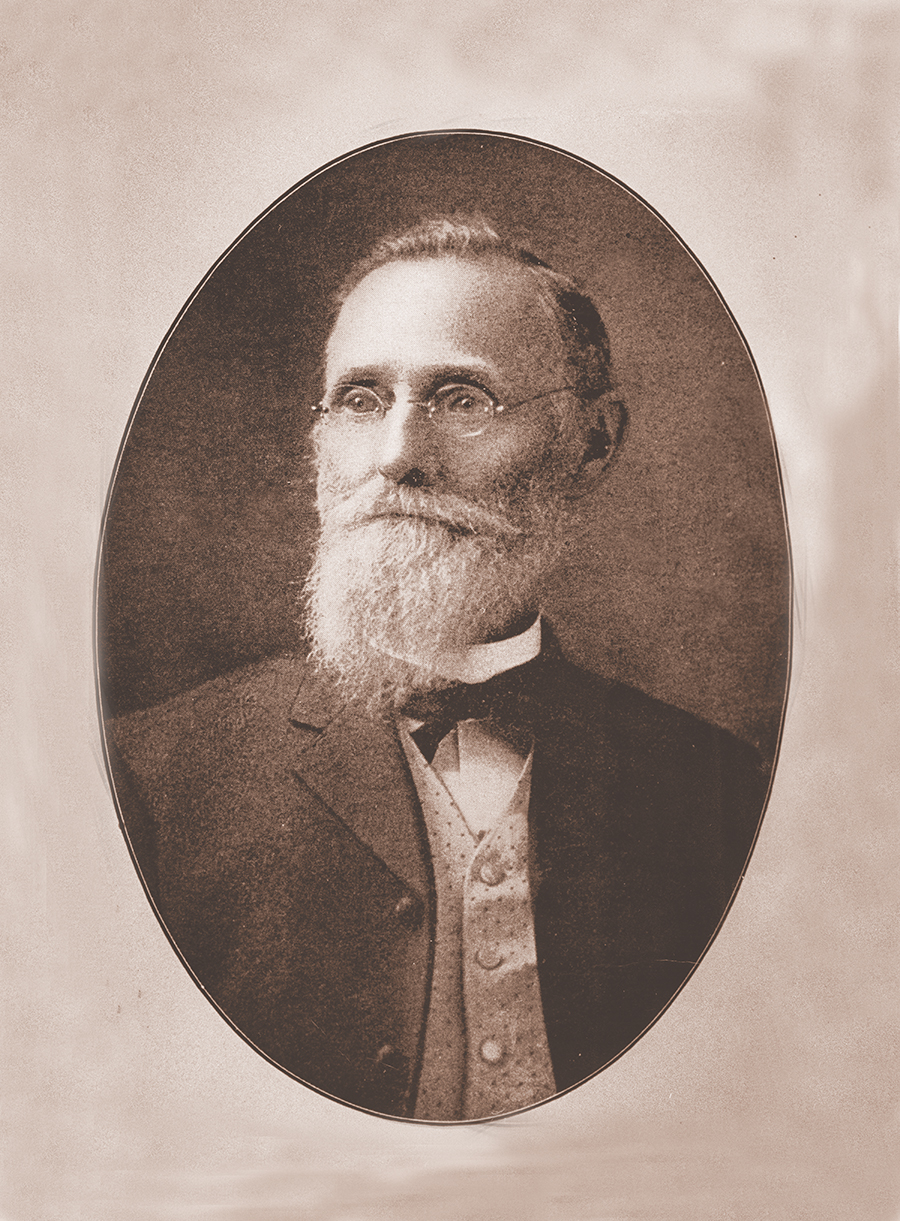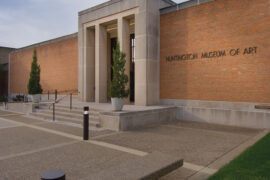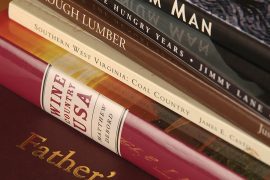A Civil War veteran and revered community leader
By James E. Casto
HQ 49 | AUTUMN 2003
The name “Cammack” is one that is written large on Huntington history. From the city’s earliest days, the Cammack family was a driving force, not just in the city’s business community, but in its religious and civic life as well.
Born on a farm near Dayton, Virginia, in 1843, John Henry Cammack went to school in Staunton and Lexington and as a boy attended a Sunday School class taught by Thomas J. Jackson. In 1859, the Cammack family moved west to Clarksburg, in what is now West Virginia, and there homesteaded another farm.
With the advent of the Civil War, John Henry and his older brother, Lucius, enlisted as privates in the Confederacy’s 31st Virginia Infantry. Lucius would be killed in battle. John Henry, though wounded more than once, would fight through the entire war, serving part of the time under his old Sunday School teacher, now known to history as General “Stonewall” Jackson.
The young soldier’s wartime reminiscences are recounted in a little book, Personal Recollections of Private John Henry Cammack, written at odd moments during his final years and published by his sons after his death. Only 50 of the books were printed, and copies are eagerly sought by collectors of Civil War literature. In 1991, the Marshall University Library Associates reprinted the book, making it available to a broader audience.
In their introduction to their father’s book, his sons note that, where most histories of the war had been written from the standpoint of the generals who directed it, this was an account as rendered by one simple soldier.
The book offers no false bravado or bluster, instead it simply recounts what happened, including an account of the hunger and other privations the men often faced. “We would get meat but once in from two to three months,” he wrote. “I paid a dollar for a cold sweet potato.”
On the larger issues of what caused the war or if it could have been avoided, John Henry Cammack kept silent. “I was a Virginian,” he wrote, “as were my people, and when my state went to war, I saw no other course open but to follow the fortunes of the Old Dominion.”
At the war’s end, the defeated Confederate soldiers were left to make their way home the best way they could. For most, it was a long, footsore trek. In John Henry’s case, it was a 300-mile walk back to Clarksburg, where he resumed working on the family farm.
In 1866, John Henry married Mary Jane Fox, known to her family and friends as “Molly.” The next year they had a son, Lucius, and in 1868 they moved to Williamstown, West Virginia, where John Henry established himself as a cigar maker, a trade he had briefly studied as a boy. In 1870, the Cammacks had a second son, Charles Walker.
John Henry worked in the cigar trade for the next nine years, interrupted only by a brief stint as a clerk on a riverboat. Eventually, his physician advised him that he had best find another line of work, that the close confinement of the cigar factory and his constant smoking were seriously damaging his health.
In Williamstown, John Henry had become good friends with the Rev. W.P. Walker, a Baptist minister. When Walker moved downriver to the new town of Huntington, to take charge of a newly organized church, he urged John Henry to move to Huntington and enter another line of business.
So in 1878, John Henry, now 34, bought a stock of wearing apparel and, with his family, boarded the Ohio River packet steamer Katie Stockdale, heading for Huntington, where he lost no time setting up shop with the apparel he had brought.
John Henry would be a successful clothing merchant for the next 12 years, until 1890, when he sold his store and went into the insurance business with an old friend from his army days, J.N. Potts. Later, when John Henry’s son, Charles Walker, joined the firm, it expanded into real estate development.
A Baptist deacon, John Henry helped establish the Fifth Avenue Baptist Church and, later, the Twentieth Street Baptist Church.
John Henry remained proud to have served under Generals Robert E. Lee and Stonewall Jackson and for many years was commander of the local unit of the United Confederate Veterans. He was still serving in that post on his death on May 6, 1920.
Cammack Elementary School and Cammack Middle School, located on the citys historic South Side, are named in honor of John Henry Cammack.
In his foreword to the 1991 edition of Cammack’s Civil War memories, Bos Johnson, then the chairman of the Marshall Library Associates, observed that John Henry Cammack was not only one of the young Huntington’s most dedicated civic leaders, “he effectively communicated his community concerns to succeeding generations of his family.”
Lucius, John Henry’s oldest son, was well known in Huntington as a real estate broker and talented musician. One of the founders of what is today the Huntington Regional Chamber of Commerce, he died in 1921, not long after his father’s death.
As a young man, Charles Walker worked briefly for the First National Bank before going into partnership with his father. Active with a number of local charities, he was president of the old Huntington Union Mission for 27 years. On his death in 1946, it was renamed the Charles W. Cammack Children’s Center and remains in operation today, serving troubled youngsters — certainly a fitting tribute to the Cammack family’s concern for the entire community.





